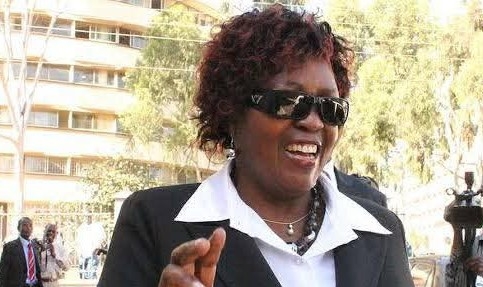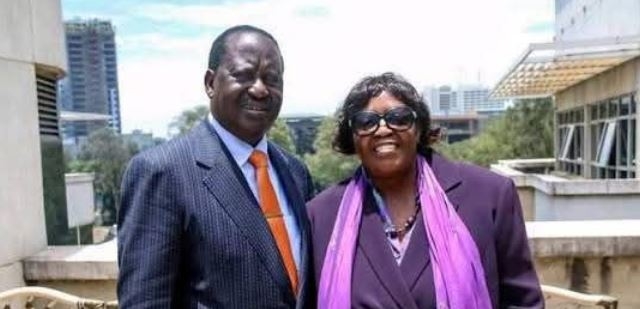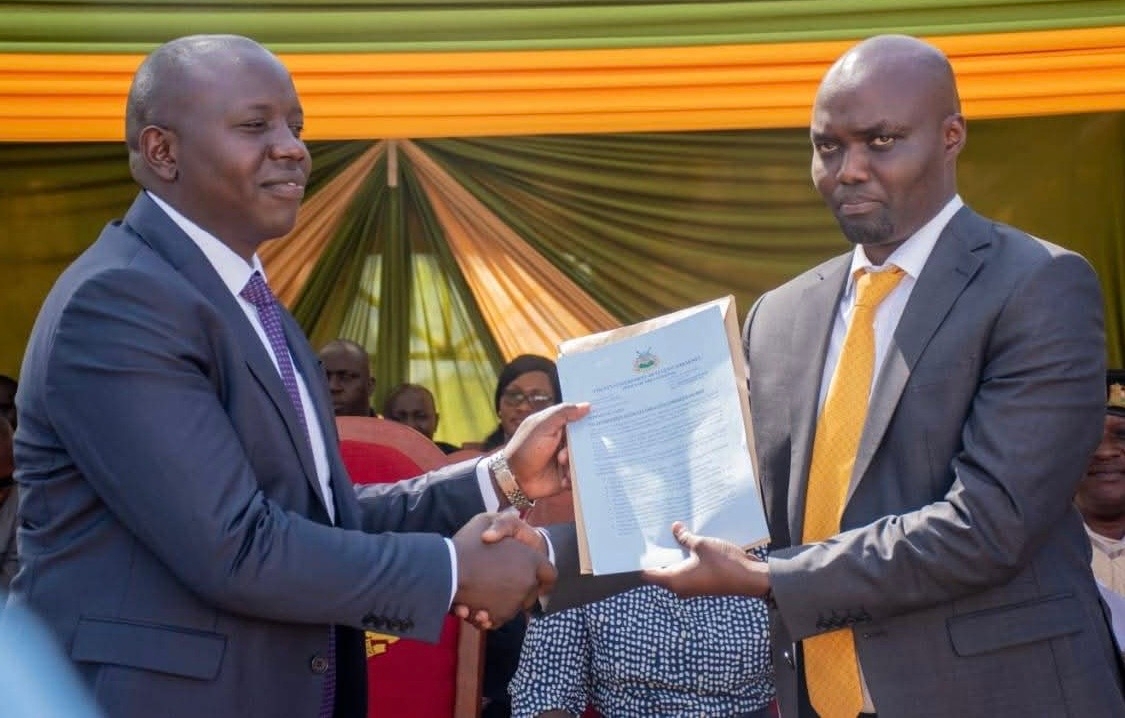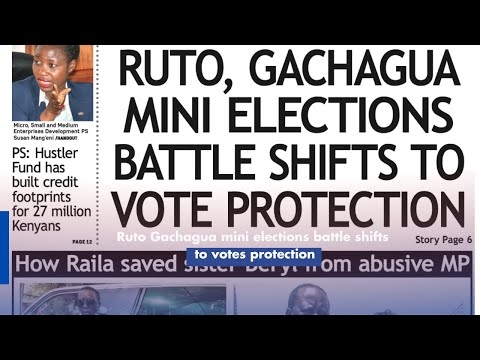Two recent judicial decisions issued have signaled big wins for the independence of Judges.
The protection of independence of Judges has its roots in our progressively conceived Constitution, 2010. Pre-2010, the role of the judiciary appeared entirely peripheral and strongly colored with open-ended foibles and interferences from the Executive.
Post-2010, the intimidation, coercion, and intervention by the Executive have significantly reduced due to the numerous checks provided for in the Constitution. Notably, Article 160 (1) of the Constitution provides that in the exercise of judicial authority, the Judiciary shall be subject to only the Constitution and the law and shall not be subject to the control or direction of any person or authority.
This means that matters lawfully decided by Judges, within the judicial discretion and authority of the Judge are protected, by Article 160 of the Constitution, from interference or influence by any party.
However, the above notwithstanding, there is two emerging threats, from a different and unexpected, that severely undermines the independence of Judges. This is the unmitigated wrath of disgruntled litigants and their complaints which have been mismanaged (deliberately so in some cases) by the Judicial Service Commission (JSC).
The High Court case of Apollo Mboya v Judicial Service Commission & 6 others, [2016] eKLR demonstrates this. In this matter, Mr. Mboya petitioned the JSC to remove from office Justices Mohammed Ibrahim, Prof. JB. Ojwang and Njoki Ndung’u for alleged violation of the Constitution. JSC found that although the Judges had not violated the Constitution, it still decided to go ahead and admonish the Judges.
Justice Njoki Ndung’u disagreed with the findings of the JSC and filed for review in the High Court. Justice W. Korir, on 14th May 2020, held that the probe against Justice Njoki Ndung’u by the JSC was unlawful and subsequently quashed the sanction imposed against her.
Judge Korir stated that the JSC should avoid complaints, which invite it to analyze a judgment or ruling in order to determine alleged incompetence of the judge or judicial officer who authored the decision. The Judge was categorical that ‘once the JSC determines that the complaint is about the merits of a decision, it should drop such a complaint like a hot potato without even bothering to ask the judge or judicial officer to respond to the complaint.’
The Judge noted that allowing JSC to meddle with the judicial discretion of judges and judicial officers would severely impact on the independence of the Judiciary. He pointed out that although the JSC should in all ways safeguard the independence and accountability of Judges, this, however, cannot be interpreted to mean that the JSC can direct or determine how, or when, a Judge may perform his or her judicial duty.
The Supreme Court, on 15th May 2020, also elucidated on the bounds of judicial immunity in the case of Bellevue Development Company Ltd v Hon. Justice Francis Gikonyo & 3 Others, Petition No. 42 of 2018. The Court considered Bellevue’s claim that two serving High Court Judges had acted in bad faith and breached Bellevue’s right to fair trial when they decided against Bellevue. The apex Court, held that Bellevue had not produced an iota of evidence to prove this claim.
The Court made astute findings on the judicial immunity of judges in the exercise of their judicial functions. It observed that Article 160(5) of the Constitution which provides that “A member of the Judiciary is not liable in an action or suit in respect of anything done or omitted to be done in good faith in the lawful performance of a judicial function” entrenches the immunity of judicial officers who act in ‘good faith’.
The Court explained that the rationale for this judicial immunity is the preservation of independent decision-making capabilities of judicial officers which is an important aspect of judicial independence under the doctrine of the separation of powers. The Court was categorical that absolute judicial immunity is meant to provide protection to judicial officers from third parties’ interference, influence or, obstruction.
The Court emphasized that this immunity is not necessarily for the benefit of the Judge or judicial officer concerned. It is for the public and in particular for litigants appearing before the Courts of law: to protect the administration of justice.
The findings of the Tribunal to investigate the conduct of Supreme Court Justice (rtd) Prof. JB Ojwang which was appointed on 29th March 2019 are also useful. This Tribunal had been formed because a litigant had complained to the JSC that Judge Ojwang heard and determined a matter when he ought to have recused himself. The JSC recommended his suspension and the President appointed a Tribunal to inquire into the Judge’s conduct.
The tribunal exonerated the Judge. It found that the Petition was the result of a process that was procedurally irregular, unfair, carried out in breach of the JSC’s constitutional and legal obligations, and in breach of the Judge’s constitutional rights to fair administrative action, and natural justice.
It also found that there was insufficient basis for asking the President to form a Tribunal to inquire into the conduct of the Judge; there is need to establish a procedural threshold applicable by the JSC and it was questionable which rules the JSC applied in arriving at its decision.
The Tribunal noted that it took around 3 years in total for the JSC to begin hearing the matter from the time it received the complaint. This inordinate delay in prosecuting and concluding the petition amounted to abuse of the petition. The Tribunal observed that such delay can render the Petition a tool of intimidation and control of a Judge, thus undermining the independence of a Judge and the Judiciary.
Evidently, left unchecked, the JSC may potentially intervene, interfere, or even intimidate Judges, which can erode, if not, completely destroy the independence of Judges. Although the JSC is mandated by law to craft and define its rules of procedure, it has never done so. In real sense, therefore, all its procedures do not have a constitutional, statutory, and legal basis.
This means that it can conduct ad hoc processes that may be open to perceptions of bias, abuse of authority, lack of consistency and transparency and fail to adhere to fundamental tenets of fair process as enshrined in the Constitution. As Justice Korir noted ‘the lack of a clear procedure is not a hallmark of a fair administrative process. A person being taken through an administrative action should be able to tell beforehand what to expect of the process.’ Similar findings were made by the Tribunal in Justice Ojwang’s case.
Therefore, it is imperative to have a rethink at what is really constitutes an impediment to Judicial independence in the Post Constitution 2010 era. It is no longer really interference from an all-powerful unchecked executive. Instead it is the workings of a Judicial Service Commission, operating without oversight and any solid regulatory framework.
There is need for both Constitutional and Statutory initiatives from Parliament, which should include inter alia: rules of procedure which bind the JSC before any of its actions is considered lawful; time frames for any requisite action by the JSC, and tests and standards that ought to be met at every stage of processing a petition against a Judge before a recommendation to the President is made. The sooner this is done the better, allowing no room for the intimidation of Judges from any source and for an independent efficient and functioning Judiciary.














![[PHOTOS] Family, friends receive body of Raila’s sister, Beryl](/_next/image?url=https%3A%2F%2Fcdn.radioafrica.digital%2Fimage%2F2025%2F11%2Fdfe6a9bf-ede1-47a4-bdc0-4f564edb03dd.jpeg&w=3840&q=100)

